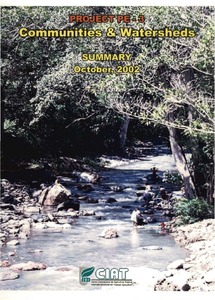Assessing the impact of integrated natural resource management: Challenges and experiences
Assessing the impact of integrated natural resource management (INRM) research poses a challenge to scientists. The complexity of INRM interventions requires a more holistic approach to impact assessment, beyond the plot and farm levels and beyond traditional analysis of economic returns. Impact assessment for INRM combines the traditional "what" and "where" factors of economic and environmental priorities with newer "who" and "how" aspects of social actors and institutions. This paper presents an analytical framework and methodology for assessing the impact of INRM.


